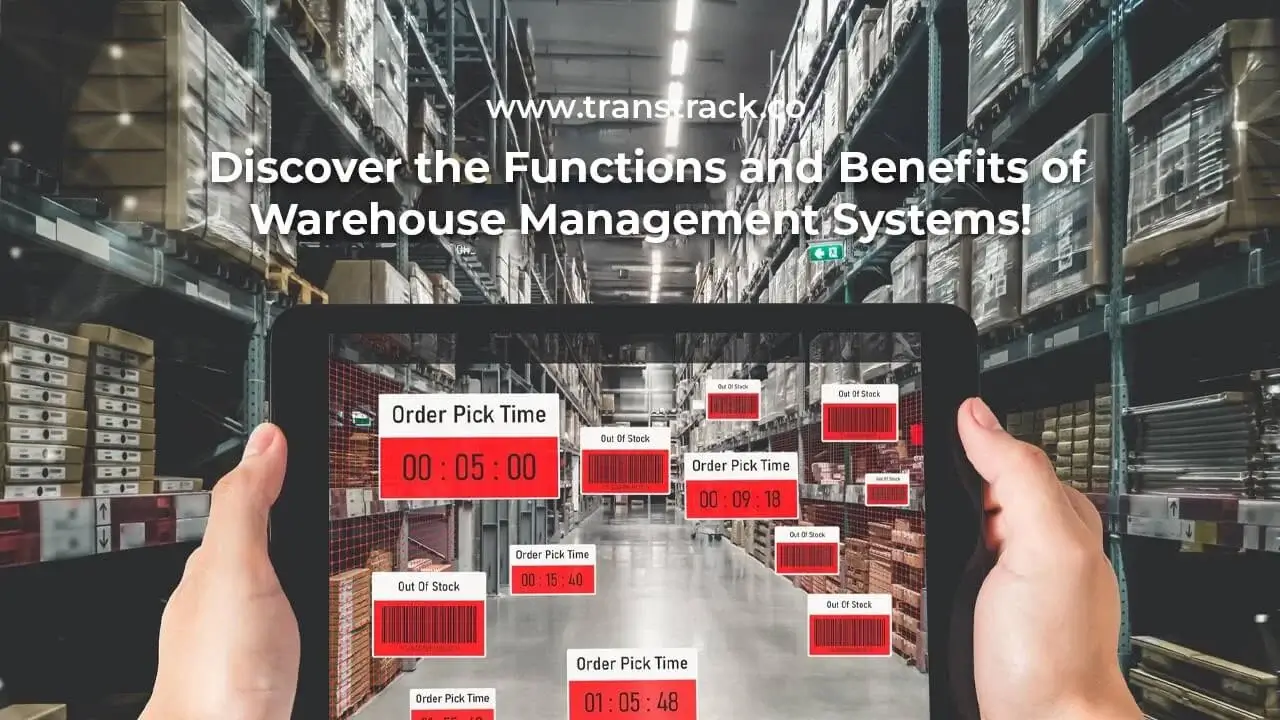Discover the Functions and Benefits of Warehouse Management Systems!

The Warehouse Management System (WMS) is a system utilized to oversee all activities related to warehouse operations, including stock management, movement of goods, pick and pack management, and transportation management.
WMS enables warehouse managers to efficiently monitor and control every activity occurring within the warehouse, from receiving goods to delivering them to customers. This system provides the capability to track inventory, optimize the movement of goods, monitor shipments, manage stocks, and enhance overall warehouse operation efficiency and productivity.
WMS is typically integrated with a more extensive supply chain management system and can interact with inventory management and order management systems to ensure that warehouse stock remains optimal and available when needed.
Functions and Benefits of Warehouse Management System
The Warehouse Management System (WMS) is an automation system used to manage warehouse operational processes. Here is an explanation of the functions and benefits of WMS regarding several mentioned points:
Efficiency in Management Process Timeliness
WMS contributes to improving the efficiency of management processes by providing real-time information about stock levels and operational activities in the warehouse. Consequently, management can make quick and informed decisions to enhance productivity and efficiency in the warehouse.
Simplified Storage Layout Management
WMS streamlines the process of arranging and organizing the storage of goods in the warehouse. This system provides comprehensive information about the location, quantity, and types of stored goods. With this information, employees can precisely identify where items are stored, thus simplifying the retrieval and storage of goods.
Reduced Equipment Purchase and Maintenance Costs
WMS helps reduce equipment purchase and maintenance costs as it optimizes warehouse space usage and considers warehouse capacity. Consequently, companies can acquire equipment that aligns with their needs and optimize its utilization.
Enhanced Employee Performance and Productivity
WMS can boost employee performance and productivity in the warehouse because it can automate and optimize operational activities in the warehouse. As a result, employees can focus on more critical tasks such as processing goods and shortening warehouse operation times.
Improved Warehouse Inventory Accuracy and Expedited Shipping Processes
WMS can enhance warehouse inventory accuracy and expedite shipping processes by monitoring and updating the status of goods in real time. This allows companies to obtain accurate and timely information about stock levels and shorten delivery times.
Inbound Processes
WMS can optimize inbound processes or the receipt of goods in the warehouse by scheduling the receipt of goods, arranging the placement of goods in the warehouse, and monitoring stock availability.
Warehouse Processes
WMS can optimize warehouse processes by arranging the placement of goods, monitoring stock levels, and managing the efficient and precise retrieval of goods.
Outbound Processes
WMS can optimize outbound processes or the shipping of goods by considering capacity and location for picking goods, optimizing delivery routes, and updating the status of shipped goods in real time.
What Are the Benefits of Warehouse Management Systems for Businesses?
The Warehouse Management System (WMS) is a system that can help improve warehouse operational efficiency and effectiveness, offering numerous advantages for businesses. Here’s an explanation of the benefits of WMS across several points mentioned:
Speeding Up Handling Processes
WMS can enhance the speed of handling processes in the warehouse by providing real-time information about stock levels and operational activities in the warehouse. This enables companies to expedite the receipt, shipping, and retrieval of goods, thereby boosting productivity and efficiency within the warehouse.
Efficient Storage Space Management
WMS assists in efficiently and effectively managing storage space, maximizing warehouse space utilization. This can help companies reduce storage costs and optimize warehouse capacity.
Minimizing Payroll Expenses
WMS aids in minimizing payroll expenses by optimizing operational processes within the warehouse. The system efficiently and effectively allocates tasks to warehouse employees, maximizing their productivity.
Improving Customer Service
WMS can enhance customer service by expediting the shipping process and ensuring accurate stock availability. This can lead to increased customer satisfaction and bolster the business’s reputation.
Enhancing Employee Performance
WMS contributes to improving employee performance in the warehouse by efficiently organizing tasks. This allows employees to focus on crucial tasks, speeding up warehouse operations.
Reducing Company Expenditures
WMS helps reduce company expenditures by maximizing warehouse space usage and optimizing equipment utilization in the warehouse. This can aid in reducing operational costs within the warehouse and improving profitability.
Enhancing Effectiveness and Efficiency
WMS can enhance the effectiveness and efficiency of warehouse operations by providing real-time information and optimizing operational processes within the warehouse. This helps companies improve productivity and reduce operating time in the warehouse.
Elevating Customer Satisfaction
WMS can elevate customer satisfaction by expediting the shipping process, ensuring accurate stock availability, and improving service quality. This can help companies strengthen customer relationships and achieve long-term benefits.
These are the explanations regarding the benefits of the Warehouse Management System (WMS) for businesses. In optimizing the delivery of goods, companies can leverage Fleet Management System (FMS) technology like TransTRACK, which can efficiently and effectively monitor and manage vehicle fleets.
With TransTRACK, companies can obtain accurate, real-time information about vehicle locations, vehicle and driver conditions, and monitor fuel usage. This assists companies in optimizing delivery routes, minimizing operational costs, and enhancing overall operating efficiency.
Topic





